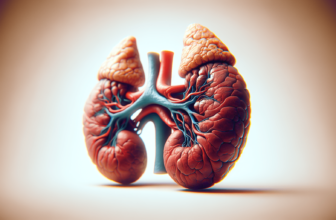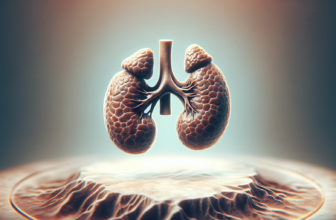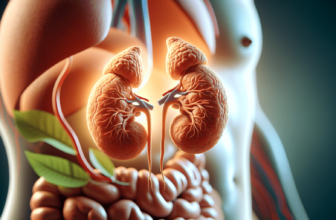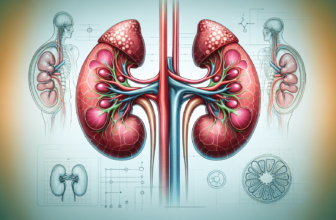
Curious about adrenal fatigue? Learn what it is, its symptoms, and how you can manage it for better health.
What is Adrenal Fatigue?

Adrenal fatigue happens when your adrenal glands, which produce important hormones, are overworked. This often results from long-term stress or illness. People with adrenal fatigue might feel extremely tired and have trouble getting through the day.
The condition can also cause other symptoms like body aches, sleep disturbances, and digestive problems. These symptoms occur because the adrenal glands are not producing enough hormones needed to regulate various body functions.
Managing adrenal fatigue involves reducing stress, getting enough rest, and eating a balanced diet. Some people may also find it helpful to take specific supplements or work with a healthcare provider to develop a personalized treatment plan.
Common Symptoms

Feeling constantly tired even after a full night’s sleep might be a sign of adrenal fatigue. This kind of tiredness doesn’t go away with rest and can affect your daily activities and overall energy levels.
Mood swings and irritability can also be linked to adrenal fatigue. If you find yourself feeling easily overwhelmed or unusually stressed, it might be due to your adrenal glands not functioning properly.
Craving salty foods more than usual is another symptom. Your body may be trying to balance its salt levels, which can be disrupted when your adrenal glands are under strain.
Causes and Triggers

Chronic stress is one of the main factors leading to adrenal fatigue. When you’re constantly stressed, your adrenal glands work overtime to produce stress hormones, which can eventually wear them out.
Poor lifestyle choices, like lack of sleep and unhealthy eating habits, can also contribute to adrenal fatigue. Without proper rest and nutrition, your body struggles to maintain balance, affecting your adrenal glands.
Long-term illness or infections can trigger adrenal fatigue as well. When your body is fighting off disease for an extended period, it can exhaust your adrenal glands, making it harder for them to function properly.
Diagnosis

Doctors often start by asking about your symptoms and lifestyle. They may also do a physical exam to check for any obvious signs of adrenal fatigue. This helps them get a better idea of what might be going on with your body.
To diagnose adrenal fatigue, doctors might order blood tests to check hormone levels, especially cortisol. Low cortisol can be a sign of adrenal fatigue. They might also look at other hormones to get a full picture of your adrenal health.
Saliva tests are another way to check for adrenal fatigue. These tests measure cortisol levels at different times of the day. This can show if your cortisol pattern is off, which is a common sign of adrenal fatigue.
Treatment Options

To manage adrenal fatigue, start by making simple changes to your lifestyle, like getting more sleep and reducing stress. Regular exercise and a balanced diet can also help improve your overall energy and well-being.
Supplements can be beneficial for adrenal fatigue. Vitamins like B and C, along with minerals such as magnesium, can support adrenal health. Always consult with a healthcare provider before adding new supplements to your routine.
Mindfulness practices such as meditation and yoga can play a significant role in managing adrenal fatigue. These techniques help calm the mind and reduce stress levels, promoting better recovery and energy balance.
Diet and Nutrition

Eating a balanced diet rich in whole foods can help manage adrenal fatigue. Incorporate foods like leafy greens, lean proteins, and healthy fats while avoiding processed foods and sugars. This helps maintain steady energy levels throughout the day.
Hydration is crucial for those dealing with adrenal fatigue. Drinking plenty of water supports overall health and can improve energy. Avoiding caffeine and alcohol can also help prevent further strain on your adrenal glands.
Certain vitamins and minerals play a key role in adrenal health. Foods high in Vitamin C, B vitamins, and magnesium can support adrenal function. Consider adding citrus fruits, nuts, seeds, and whole grains to your diet to boost these nutrients.
Stress Management

Stress management is key to easing symptoms of adrenal fatigue. Simple practices like deep breathing, meditation, and light exercise can make a big difference. These activities help calm the mind and reduce the body’s stress response.
Maintaining a balanced lifestyle also plays a crucial role in managing stress. Ensure you get enough sleep, eat nutritious meals, and take regular breaks throughout the day. These habits support your body and mind, helping to keep stress levels in check.
Connecting with others can significantly reduce stress. Spend time with friends and family, or join a support group. Sharing your thoughts and feelings with others can provide emotional relief and help you cope better with stress.
Sleep and Rest

Getting enough sleep is key to recovering from adrenal fatigue. Your body needs this time to repair and recharge. Aim for 7-9 hours of sleep each night to help balance your hormones and support overall health.
It’s not just about the quantity of sleep, but also the quality. Make sure your bedroom is dark, quiet, and cool. Establish a bedtime routine to signal your body that it’s time to wind down.
Rest during the day is also important. Take short breaks to relax and avoid pushing yourself too hard. Activities like meditation or gentle yoga can help reduce stress and promote healing.
Exercise

Exercise can be both beneficial and harmful for adrenal fatigue. While light activities like walking or yoga can help reduce stress and improve mood, intense workouts might worsen your condition by putting extra strain on your adrenal glands.
Moderate exercise, such as swimming or biking, helps in managing adrenal fatigue. These activities offer a balanced approach, providing physical benefits without overloading your body. It’s important to listen to your body and adjust your routine accordingly.
Consistency in exercise is key for those dealing with adrenal fatigue. Engaging in regular, gentle physical activity can support overall health and energy levels. Remember, it’s about finding the right balance to avoid any additional stress on your system.
When to See a Doctor

If you constantly feel tired despite getting enough sleep, it might be time to see a doctor. Persistent fatigue can be a sign of adrenal fatigue or other health problems that need medical attention.
Unexplained weight loss, craving salty foods, or having low blood pressure could indicate adrenal fatigue. If you notice these symptoms, it’s important to consult a healthcare professional to rule out serious issues.
Mood swings, memory problems, or difficulty handling stress may also be linked to adrenal fatigue. Seeing a doctor can help identify the cause and get you the right treatment to improve your well-being.
Conclusion
In summary, adrenal fatigue is a condition that affects many but can be managed with the right steps. By understanding its symptoms, causes, and treatments, you can take charge of your health. Remember to consult with a healthcare professional for personalized advice.








[…] What is Adrenal Fatigue? A Comprehensive Beginner’s Guide […]
[…] What is Adrenal Fatigue? A Comprehensive Beginner’s Guide […]
[…] What is Adrenal Fatigue? A Comprehensive Beginner’s Guide […]